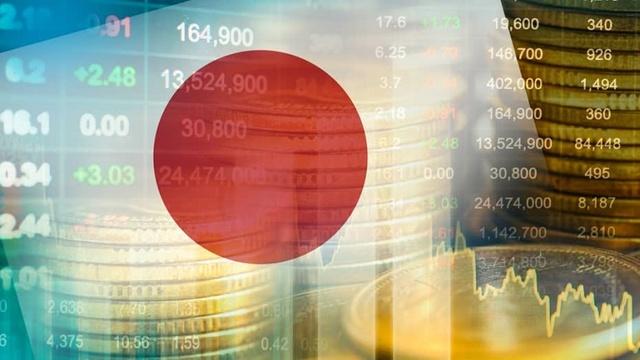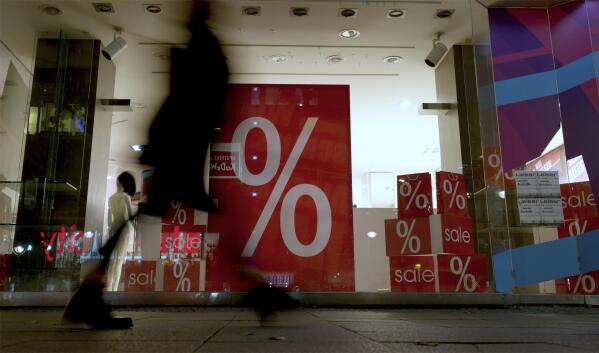Japan Suddenly Enters Recession, Hands The Spot Of World’s Third-Biggest Economy To Germany
Japan's unanticipated setback has rendered it from the spot of being the world's third biggest economy as it slipped into recession towards the end of the previous year. As Japan faces economic challenges stemming from weak demand, sluggish consumption, and production halts in key industries, analysts and policymakers are left weighing the feasibility of a swift recovery and the efficacy of policy responses in these turbulent times. On the other hand, Germany has gained the spot despite the nation grappling with sluggish growth projections amidst ongoing uncertainties, even as factors such as cautious consumer spending, subdued corporate investments, and external trade risks contribute to the subdued outlook.

Japan, once the world’s third-largest economy, now faces unexpected economic downturns, slipping into recession at the close of last year.
The setback not only forfeited its esteemed title to Germany but also instigated speculations regarding the timing of the central bank’s departure from its decade-long ultra-loose monetary policy.
Analysts are cautioning against the likelihood of another economic contraction in the current quarter. The reasons cited include –
- Weak demand in China.
- Sluggish consumption patterns.
- Production halts within prominent companies like Toyota Motor Corp.
These challenges paint a daunting path towards economic recovery, casting shadows of doubt over policymaking initiatives.
Yoshiki Shinke, a senior executive economist at Dai-ichi Life Research Institute, underlines the alarming sluggishness in consumption and capital expenditure, which are pivotal elements of domestic demand, emphasizing that the economy is likely to persist in lacking momentum, devoid of key drivers necessary for substantial growth.
According to government data released on Thursday, Japan’s gross domestic product (GDP) witnessed a decline of an annualized 0.4% in the October-December period, following a significant 3.3% slump in the preceding quarter.
The unexpected contraction not only defied market forecasts but also fulfilled the criteria for a technical recession, marked by two consecutive quarters of negative growth.
Despite prevailing expectations for the Bank of Japan (BOJ) to gradually phase out its extensive monetary stimulus this year, the dismal economic data may challenge its forecast.
The BOJ’s reliance on rising wages to bolster consumption and maintain inflation around its 2% target is now under scrutiny, with analysts questioning the feasibility of such projections.
Stephan Angrick, a senior economist at Moody’s Analytics, stressed the severity of the situation, asserting that consecutive declines in GDP and domestic demand signify troubling news.
He suggests that these circumstances make it increasingly difficult for the central bank to justify any immediate rate hikes, let alone a series of them.

Japan’s Growing Woes
Economy Minister Yoshitaka Shindo stated the importance of achieving vigorous wage growth to support consumption, which he acknowledges is currently lacking momentum due to rising prices.
He emphasizes the BOJ’s comprehensive assessment of various economic indicators and risks while guiding monetary policy, hinting at a cautious approach amidst uncertain economic conditions.
Following the release of the data, the yen remained steady, albeit near a three-month low against the dollar.
Yields on Japanese government bonds witnessed a decline as some traders adjusted their expectations regarding an early BOJ policy shift.
However, despite these economic challenges, the Nikkei stock average surged to 34-year highs, further solidifying recent assurances from the BOJ regarding the maintenance of low borrowing costs even after the cessation of negative rates.
Private consumption, constituting more than half of Japan’s economic activity, witnessed a decline of 0.2%, defying market expectations of a 0.1% gain.
Factors such as escalating living costs and unseasonably warm weather deterred households from dining out and purchasing winter clothing, contributing to the downturn in consumer spending.
Similarly, capital expenditure, another crucial driver of private-sector growth, contracted by 0.1%, contrary to forecasts predicting a 0.3% increase. Thus marking the third consecutive quarter of contraction in both consumption and capital expenditure.

The Outlook
Despite a quarterly survey indicating a robust 13.5% increase in capital expenditure among large corporations for the fiscal year ending in March, analysts caution against premature optimism.
They point to potential delays in actual investment due to escalating raw material costs and persistent labor shortages, casting doubt on the sustainability of corporate spending plans.
Moreover, recent machinery orders data, considered a leading indicator of capital spending, revealed a contraction in November, further challenging the Bank of Japan’s optimistic outlook on investment-led economic growth.
On the external front, exports surged by 2.6% from the previous quarter, contributing 0.2 percentage points to GDP growth. However, uncertainties surrounding global trade dynamics and geopolitical tensions remain significant risk factors for Japan’s export-dependent economy.
Amidst these economic challenges, the Bank of Japan has been laying the groundwork to phase out negative interest rates by April and restructure other aspects of its ultra-loose monetary framework.
However, sources suggest a cautious approach towards subsequent policy tightening, given the prevailing uncertainties; the cautious stance aligns with the U.S. Federal Reserve’s decision to pause its aggressive interest rate hikes, with expectations of potential rate cuts in the coming year.
While the International Monetary Fund revised up its global growth forecast in January, citing improvements in the outlook for the United States and China, it also warned of lingering risks, including geopolitical tensions in the Middle East.
Against this backdrop, the timing of the Bank of Japan’s departure from ultra-loose monetary policy remains uncertain.
Market analysts anticipate the potential abandonment of negative interest rates by either March or April, with many pointing to April as the favored timeline.
Some argue that Japan’s tight labor market and ambitious corporate spending plans may bolster the case for an early exit from ultra-loose monetary policy.
However, the Bank of Japan’s upcoming meeting in March is expected to shed more light on its stance, with projections suggesting a cautiously optimistic tone regarding private consumption and potential policy adjustments.

Germany’s Gain
Germany has now become the third-largest economy globally after the United States and China.
However, uncertainties persist, and the German economy faces sluggish growth prospects in 2024 – with 70% of its GDP attributed to the service sector, the country’s economic scene is intricately tied to both domestic consumption and global trade dynamics.
Despite efforts to reignite economic momentum, Germany’s economy grapples with persistently weak growth projections – Consumer saving tendencies coupled with cautious corporate investment sentiments contribute to the subdued outlook; similarly, weak foreign demand, particularly from China, casts a shadow over Germany’s economic trajectory for the year.
Forecasts from economic research institutes paint a mixed picture, with GDP growth projections for 2024 ranging between -0.5% and +1.3%.
At the same time, the unexpected slump in exports in December 2023 further deepens concerns.
Exports plummeted by 4.6% compared to the previous month, marking the largest decline in a year, and Import figures mirrored this trend, falling by 6.7%, resulting in a significant trade surplus.
The global economic climate remains insufficient to bolster Germany’s export-oriented economy, with tensions in regions like the Red Sea introducing additional trade risks.

Inflation, a critical economic indicator, witnessed a decline at the onset of 2024. Despite a previous uptick at the end of 2023, January 2024 saw a 2.9% increase in consumer prices compared to the same month the previous year, marking the lowest figure since June 2021.
Notably, cheaper energy prices played a crucial role in driving down inflation. While economists anticipate further declines in the inflation rate throughout the year, the path is expected to be volatile, with some sectors indicating intentions to raise prices in the coming months.
Moreover, the labour market presents its own set of challenges. Despite stable employment levels, the number of unemployed individuals rose in January, a typical seasonal occurrence.
The unemployment rate climbed to 6.1%, reflecting ongoing economic weakness. However, despite the challenges, the labour market remains relatively stable, albeit with persistent difficulties in filling apprenticeship positions offered by companies.
The Last Bit – Both Japan and Germany’s economic outlook for 2024 is marked by persistent challenges amid global uncertainty.
As the nations grapple with subdued growth prospects, policymakers face the daunting task of steering through economic headwinds while striving to bolster domestic consāumption, revive investment sentiments, and mitigate external risks.




